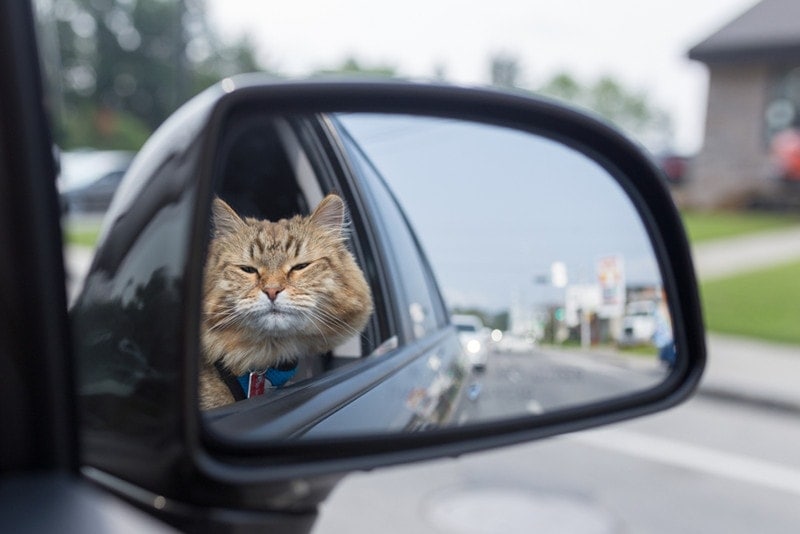Why Do Cats Trill? 3 Vet-Reviewed Reasons for This Behavior
By Ashley Bates
Updated on
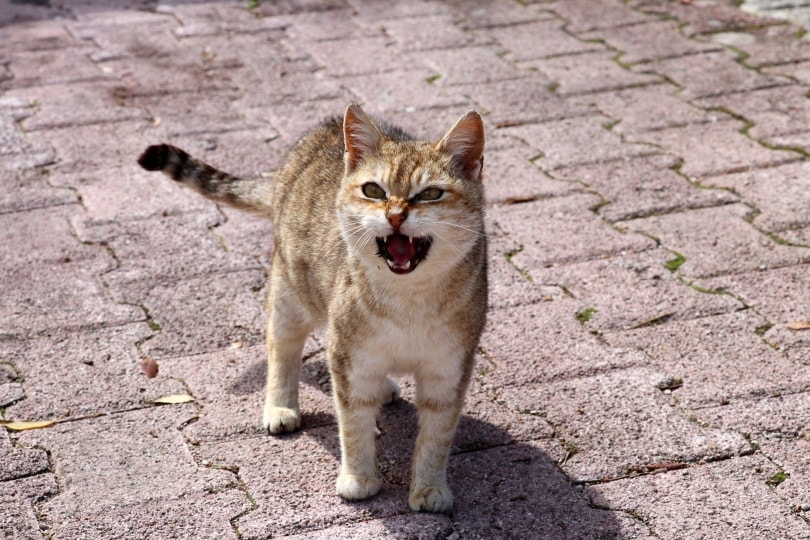
Some cats can be extremely vocal, while others remain pretty quiet. No matter what kind of feline you have, you’ve probably heard them make the trill sound on more than one occasion. But what exactly is a trill, and what does it mean?
There are definitely some different meanings to vocalizations. If your cat has suddenly started trilling at you, let’s find out what it could mean.
What Is a Trill?
A trill is a noise that your cat makes that combines a meow and a purr. It’s produced with a closed mouth and belongs to a group of sounds called murmurs, alongside the purr and chirrup.1 It almost sounds like a meow with a lovely vibrato, putting a little razzle-dazzle, sing-songy spin on things, and it often comes in a series of high-pitched repetitions. It is one of the many vocalizations we hear from our beloved felines.
Trill is also used by mother cats in order to check up on their kittens and get their attention. There are many types of cat vocalizations and sounds, with some studies counting 21 different sounds, but there are likely more that are used as a means of communication with other cats and humans.
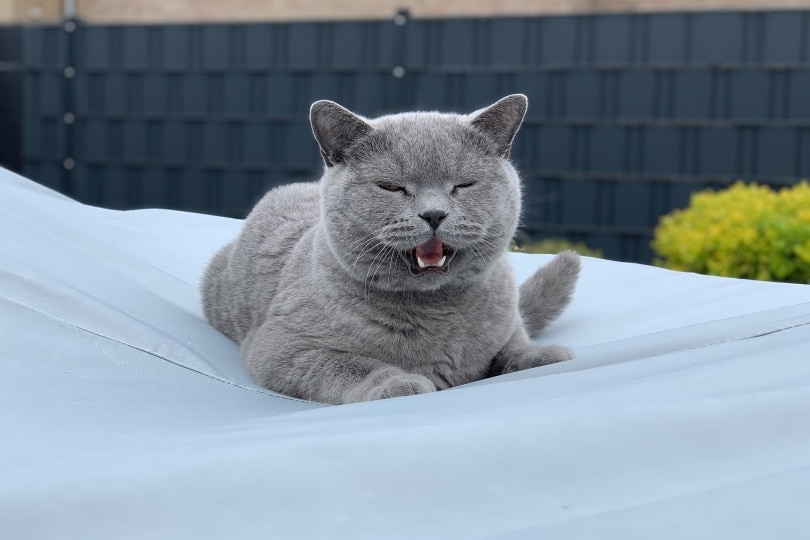
Top 3 Reasons Your Cat Is Trilling
1. Your Cat Wants Your Attention
Sometimes when a cat performs this vocalization, it can be as simple as just trying to get your attention. If you have spent a long day away or your feline doesn’t feel like they’re getting the attention they deserve, they may want to remind you that kitty comes first.
They may come up to you, half meowing, half purring to direct your attention away from whatever you’re working on. Usually, when they’re doing it for this reason, it might be accompanied by rubbing or bunting.
These are actually scent-marking and affection actions, showing ownership of you. Trilling is generally associated with positive emotions.
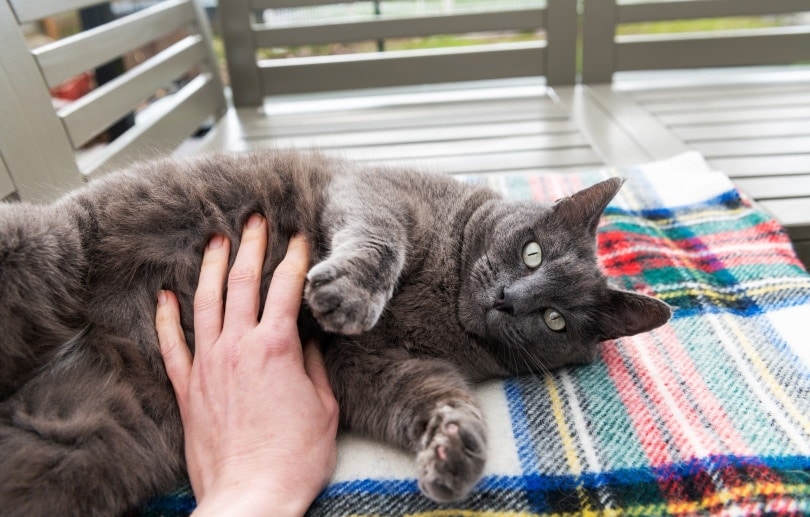
2. Your Cat Wants Food
When does your cat not have an appetite? Sometimes, when they perform this vocalization while following you around eagerly and expectedly, it can be because they want you to refill the food bowl.
Perhaps they’re running low, or maybe they’ve been out all day while you had the audacity to go to work. How dare you?
Either way, your cat might simply be looking for a little snack to fill their tummy. They need you to acknowledge the fact that they are starving to death or want something tastier than what’s on offer. Correct your mistake, and your cat shall trill no more for the time being.
3. Your Cat Is Greeting You or Someone Else
You might notice that some cats are naturally more vocal than others, trilling along the way. This vocalization is something many vocal cats do to communicate with their humans or each other. Mothers trill at their kittens to get them in line and get their attention.
If you talk to your cat and they meow back, it’ll often be followed by a trill sound that is a pleasant, pleasing way of sharing their own personal language.
Cats may also trill in response to something outside such as birds, squirrels, or other cats, although they more commonly chirp in these instances. Chirps are similar and sometimes difficult to distinguish. They are brief, high-pitched calls. While trills are more of a greeting, chirps are used to locate another cat or if prey has been observed.
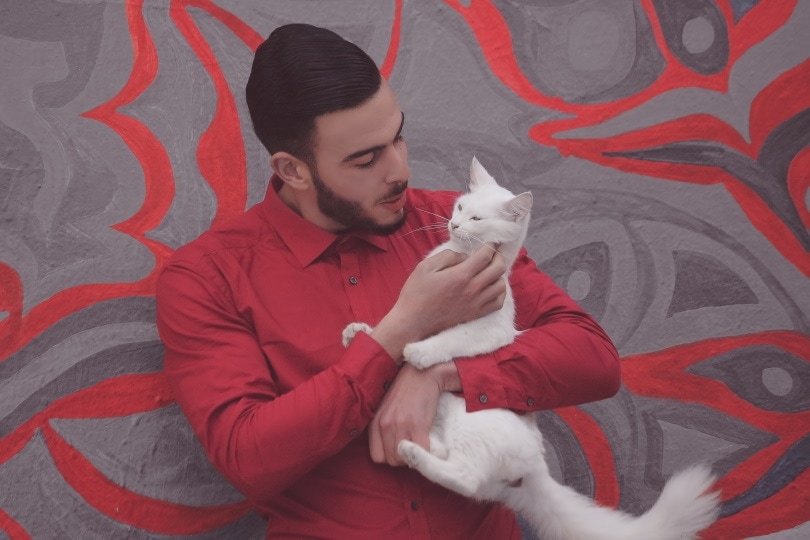
 Other Cat Vocalizations
Other Cat Vocalizations
Trilling is not the only vocalization cats make, of course. Here is a list of other sounds every cat owner will hear:
- Meowing—general communication, attention-seeking
- Hissing—displeasure, threatening, fear, angry
- Growling—warning, discomfort, irritation, pain
- Chattering—watching prey, stimulated
- Purring—pleasure, affection, sometimes a sign of pain and self-comforting
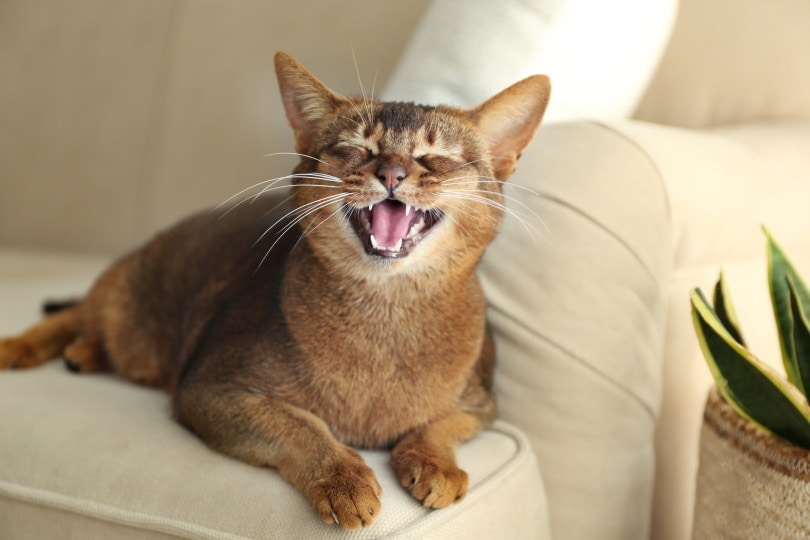
Final Thoughts
Trilling is among the more peculiar sounds your cat can make. Cats make tons of other vocalizations, too. Now that you understand that this is just a form of expressing positive emotions, you can respond to your kitty by reciprocating the favor.
As we mentioned, some kitties can be more vocal than others. Some cats may often trill as a means of speaking to you. Other cats only do this when they absolutely need something from you. Always prioritize body language above all else when it comes to decoding our mysterious feline friends.
See Also:
Featured Image Credit: Piqsels


 Other Cat Vocalizations
Other Cat Vocalizations

